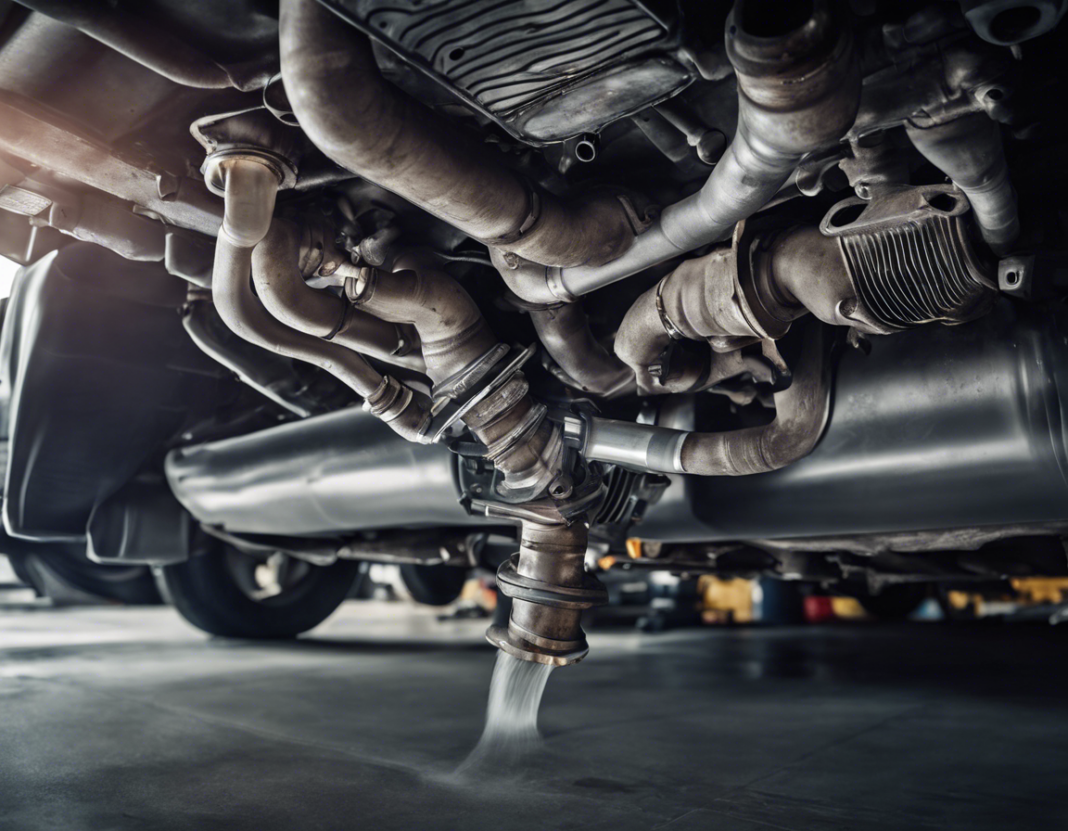Introduction
A vehicle’s exhaust system plays a crucial role in ensuring the optimal performance of the engine and maintaining the overall health of the vehicle. However, over time, wear and tear can lead to leaks in the exhaust system, which can have numerous negative repercussions on both the vehicle and its occupants. In this article, we will delve into the causes and symptoms of exhaust leaks, the potential risks they pose, and the steps you can take to address them.
Causes of Exhaust Leaks
-
Corrosion: One of the most common causes of exhaust leaks is corrosion. Over time, the metal components of the exhaust system can deteriorate due to exposure to moisture, road salt, and other environmental factors.
-
Physical Damage: Damage from road debris, speed bumps, or accidents can also lead to exhaust leaks. Any impact that causes a dent or crack in the exhaust system can compromise its integrity.
-
Failed Gaskets: Gaskets are used to seal the joints between various components of the exhaust system. If these gaskets fail or degrade, they can allow exhaust gases to escape.
Symptoms of an Exhaust Leak
-
Loud Rumbling Noise: A common sign of an exhaust leak is a loud rumbling noise coming from the engine or underneath the vehicle. This noise may be more pronounced during acceleration.
-
Decreased Fuel Efficiency: An exhaust leak can disrupt the air-to-fuel ratio in the engine, leading to decreased fuel efficiency. If you notice that you are filling up the tank more frequently, an exhaust leak could be the culprit.
-
Vibrations: Exhaust leaks can cause vibrations in the steering wheel, floorboards, or pedals. This is often felt when the vehicle is idling or accelerating.
Risks of Ignoring an Exhaust Leak
-
Health Hazards: Perhaps the most significant risk of ignoring an exhaust leak is the potential health hazards posed by carbon monoxide. This colorless, odorless gas can seep into the vehicle’s cabin and cause symptoms like headaches, dizziness, and even loss of consciousness.
-
Engine Damage: An exhaust leak can disrupt the backpressure in the exhaust system, leading to poor engine performance and potential damage to components like the oxygen sensors and catalytic converter.
-
Legal Issues: In many jurisdictions, driving a vehicle with a malfunctioning exhaust system is illegal and can result in fines or even the impoundment of the vehicle.
Addressing an Exhaust Leak
-
Visual Inspection: Start by visually inspecting the exhaust system for any signs of damage, such as rust, holes, or disconnected components.
-
Repair or Replacement: Depending on the extent of the leak, you may need to repair or replace the affected components. This could involve welding, patching, or replacing sections of the exhaust system.
-
Professional Inspection: If you are unsure about the severity of the leak or lack the tools and expertise to fix it yourself, it is best to take the vehicle to a qualified mechanic for a thorough inspection and repair.
Frequently Asked Questions (FAQs)
- Can I drive my vehicle with an exhaust leak?
It is not recommended to drive a vehicle with an exhaust leak due to the health risks associated with carbon monoxide exposure and potential damage to the engine.
- How much does it cost to repair an exhaust leak?
The cost of repairing an exhaust leak can vary depending on the extent of the damage and the specific components that need replacement. It is best to get a quote from a mechanic.
- Are exhaust leaks covered by car insurance?
In some cases, car insurance may cover the cost of repairing an exhaust leak if it is caused by a covered peril, such as an accident. However, it is best to check with your insurance provider for specifics.
- How long does it take to fix an exhaust leak?
The time it takes to fix an exhaust leak will depend on the extent of the damage and the availability of replacement parts. Minor leaks can often be repaired in a few hours, while more extensive damage may take longer.
- How can I prevent exhaust leaks in the future?
Regular maintenance, including checking for signs of corrosion, replacing worn gaskets, and inspecting the exhaust system for damage, can help prevent exhaust leaks in the future. Additionally, avoiding off-road driving and harsh road conditions can also extend the life of the exhaust system.









